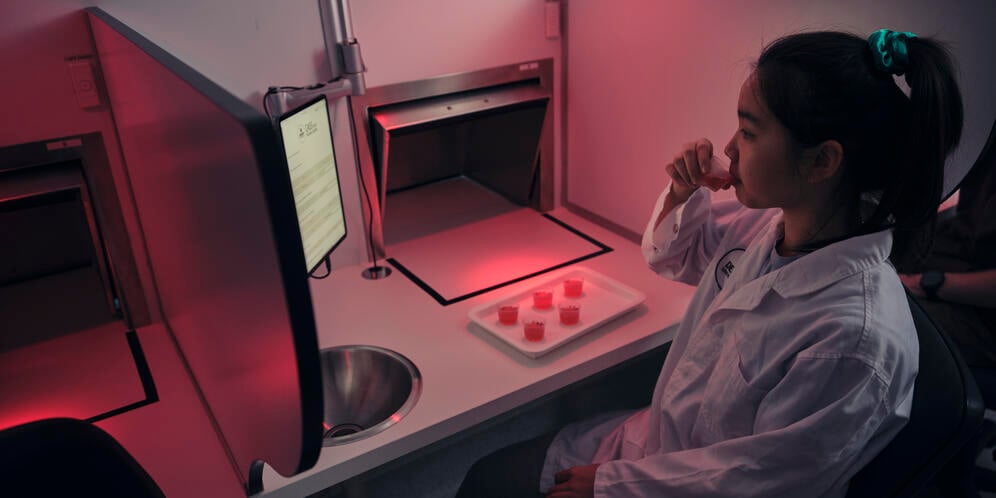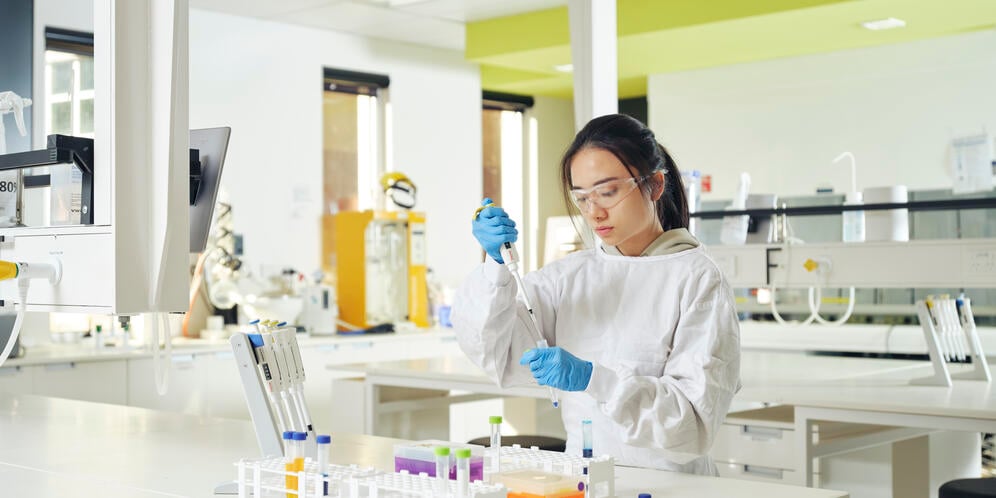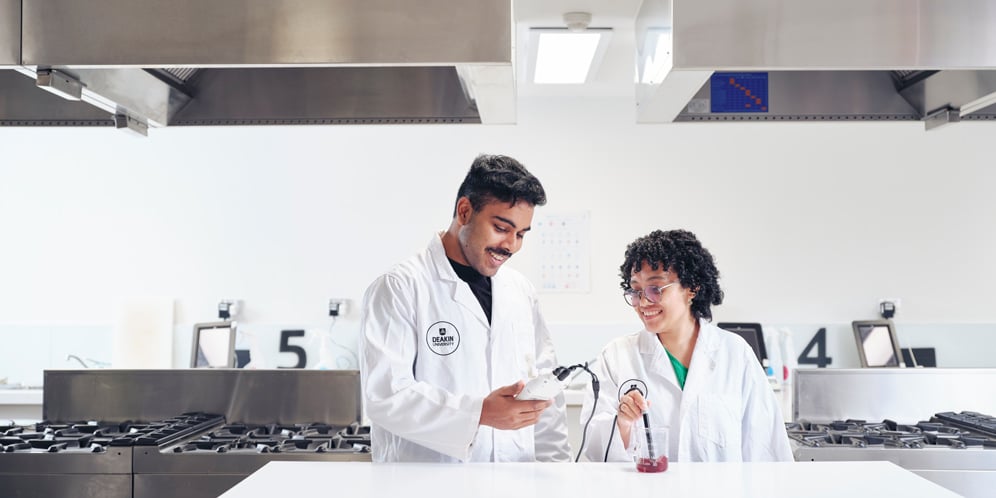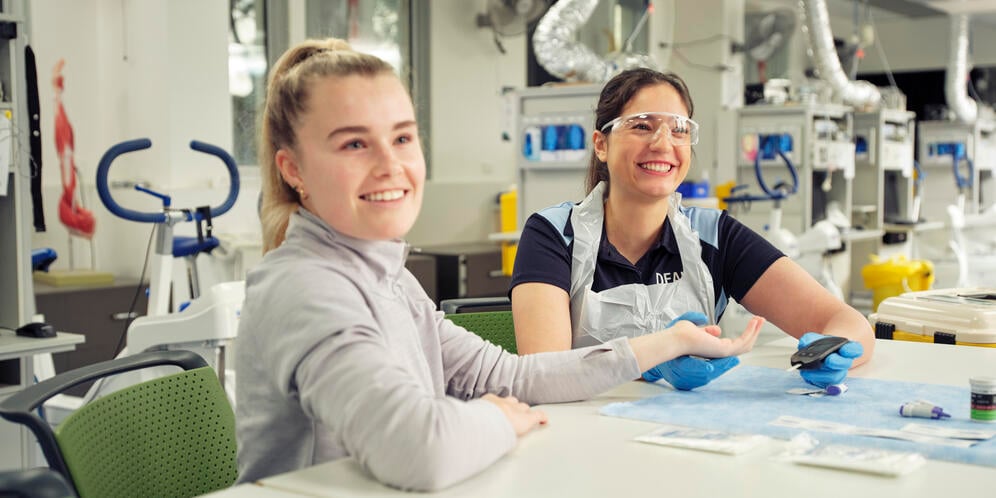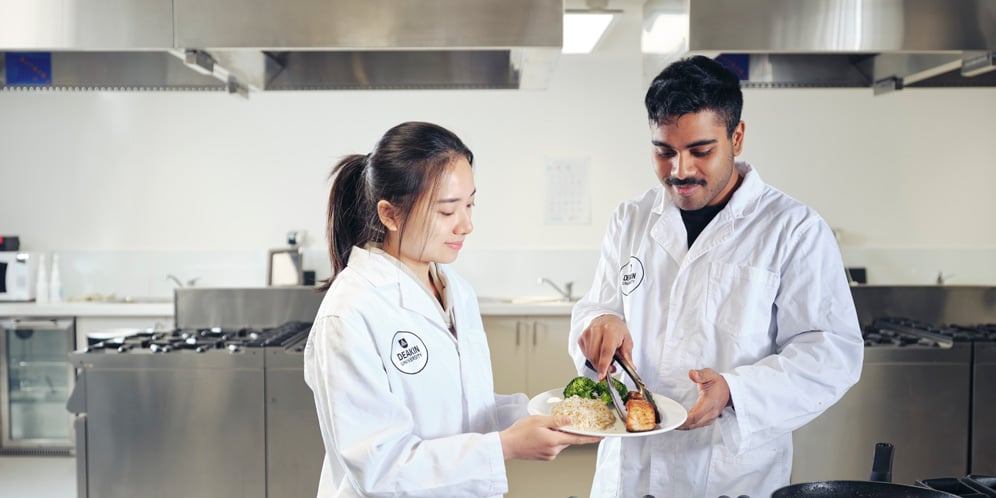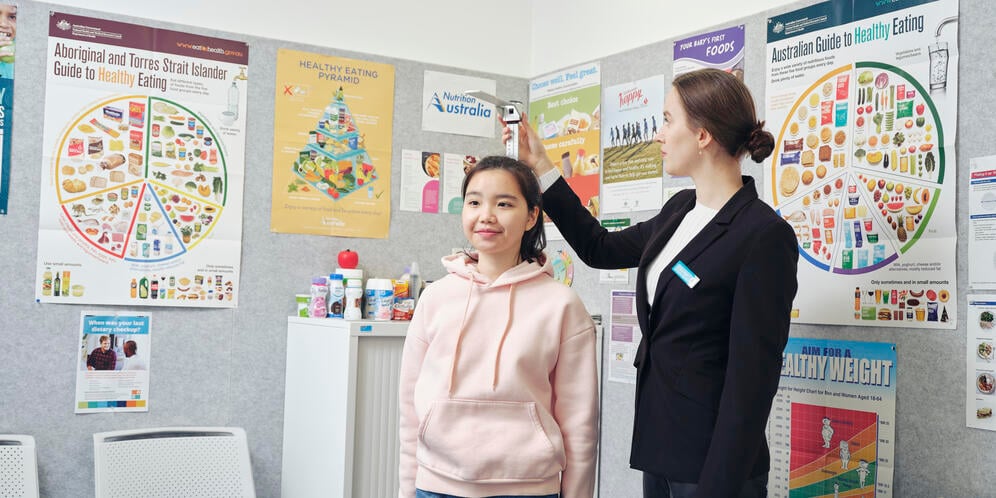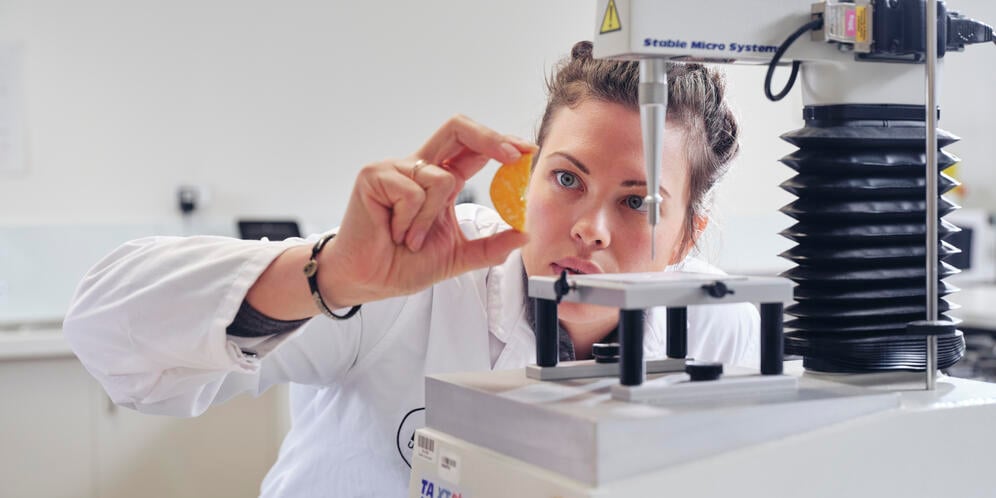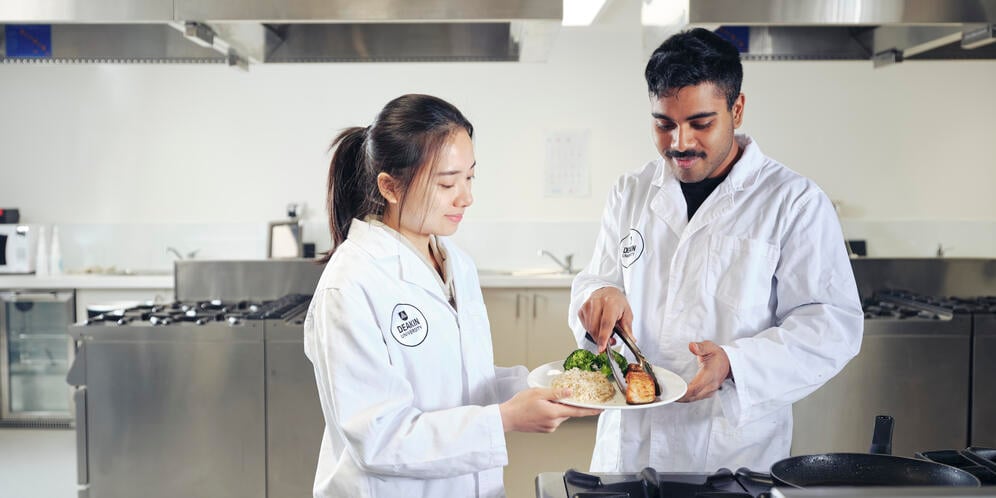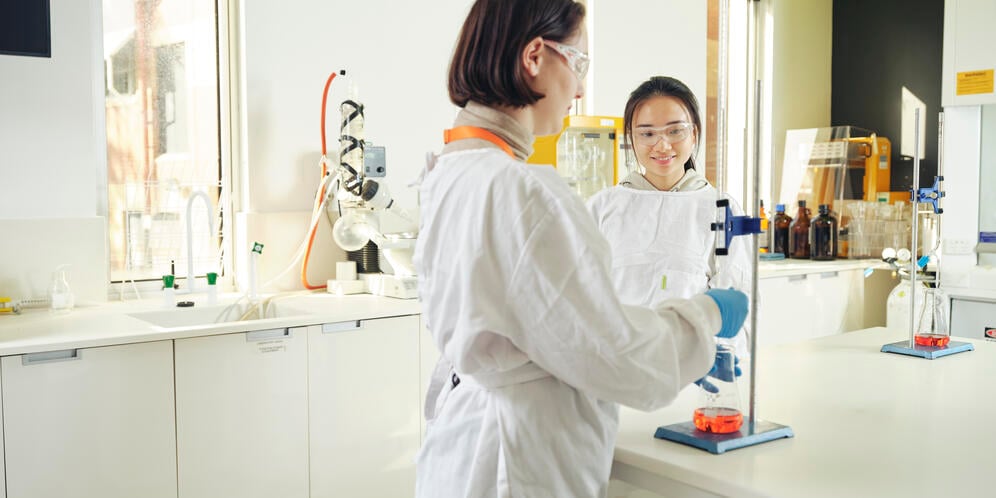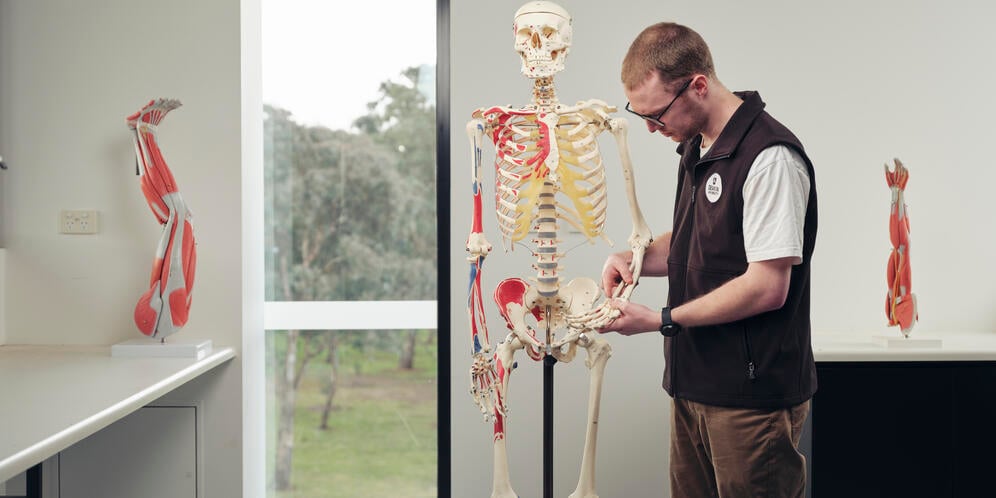There’s still time! Applications for Trimester 2 close midnight Sunday 29 June. ++
There’s still time! Applications for Trimester 2 close midnight Sunday 29 June. ++
Apply nowDiscover the food, nutrition or dietetics course for you
With more than 7% of total burden of disease in Australia due to poor diet,* there’s a growing need for nutrition expertise across multiple sectors. Our courses are shaped by cutting-edge research and informed by industry partnerships, ensuring you graduate in demand and ready to tackle society’s challenges. Not sure what course you want to study? We’ve got you covered, explore our disciplines within food, nutrition and dietetics.
Undergraduate
Undergraduate (your first degree)
A Deakin undergraduate course is the foundation of your future career, usually completed in two to four years. Duration varies based on degree type, enrolment pattern and any credit received from recognition of prior learning.
Postgraduate
Postgraduate (further study)
A postgraduate qualification can be undertaken by students who have already completed an undergraduate degree or possess significant, demonstrable work experience. Postgraduate courses include graduate certificates, graduate diplomas, masters and PhDs, as well as specialist programs for industry professionals.
Research
Higher Degrees by Research (supervised research)
Research degrees are research based master’s or PhD programs that focus on a single area of expertise. They provide students the opportunity to carry out highly specialised research under expert supervision.
Join the #1 Victorian university for course satisfaction
Learn from leaders and innovators in food, nutrition and dietetics. You’ll gain hands-on experience in world-class facilities, modelled on commercial laboratories, and take part in placement opportunities with industry partners, ensuring you graduate with confidence.
Disciplines within food, nutrition and dietetics
Take the next step to a brighter future
Explore our food, nutrition and dietetics courses and find out more about life at Deakin. Get more inspiration for your future career in a major growth sector.
Download our study area guide
Study at Deakin and be rewarded with new skills that will give you an edge in the job market
Want a degree that will make you work-ready?
At Deakin, all our courses are informed by industry leaders and cutting-edge research. Combined with access to world-class facilities and extensive placement opportunities, you’ll graduate highly skilled and work-ready.
Hands-on learning
Modelled on commercial facilities, our food preparation, food analysis and sensory laboratories give you hands-on experience, preparing you for the workplace.
Gain real-world experience
Gain extensive practical experience through placement opportunities. You’ll build industry experience and connections while applying your skills alongside established nutritionists and food industry professionals.
International perspective
Learn about food and nutrition perceptions and cultural issues by studying abroad to gain an international perspective. Our nutrition courses lead to registration from international associations.
Top professional roles in nutrition and dietetics
With increasing community interest in food, nutrition and health, there’s strong demand for specialists across a range of sectors. With a degree from Deakin you could find yourself working in diverse areas like healthcare, marketing, quality assurance or government – with strong job growth projected in food, nutrition and dietetics roles.^
In the years leading up to 2029, there is growth projected in the following roles, according to Australian Government employment projections:
- 13,400 new roles in advertising and marketing
- 4,100 new roles for policy and planning managers
- 1,200 new roles for nutrition professionals.
Professional recognition
Depending on what food, nutrition and dietetics degree you choose to study, you may be eligible for membership of and professional recognition from key professional organisations when you graduate.
- While studying nutrition science at Deakin, you’re eligible to apply for student membership with the Nutrition Society of Australia (NSA). Graduates can apply for ordinary membership of NSA or apply to become a Registered Associate Nutritionist. Registration ensures you’re recognised as a qualified nutrition professional in the field.
- You’ll have global recognition too – as a nutrition science graduate, you’re also eligible to apply to become a Registered Associate Nutritionist with the Hong Kong Nutrition Association and the UK Association for Nutrition.
- If you graduate with a major in food innovation, you may also be eligible for membership in the Australian Institute of Food Science and Technology (AIFST).
- Our Master of Dietetics is currently fully accredited by Dietitians Australia. As a graduate you can apply for full membership of Dietitians Australia and the Accredited Practising Dietitian program, so you'll be able to work in all areas of dietetics.
Regional and Remote Entry Scheme
Do you want to boost your chances of getting into your dream degree? To help address workforce shortages in regional and remote areas, we offer an alternative entry pathway into the Bachelor of Nutrition Science/Bachelor of Commerce, and Bachelor of Exercise and Sport Science/Bachelor of Nutrition Science.
Studying nutrition at Deakin University has a lot of benefits. My degree will provide me the ability to inform consumers, stimulate innovative thinking, drive vital conversations and build better health outcomes.
Safira Esperanca Da Cruz Carvalho
Bachelor of Nutrition Science
World-class facilities
Key industry partners
You'll get access to our numerous placement partnerships with respected teaching hospitals, as well as our partners in preventive healthcare and the food industry.
Over 40 years teaching dietetics
Deakin was one of the first universities in Australia to offer a course in dietetics, and has been proudly offering Dietitians Australia accredited courses for more than 40 years.
Ground-breaking research
Deakin’s research helps to shape the Australian food industry and aims to improve the health of Australian communities and prevent disease. Deakin University is #1 in Australia for research in nutrition science.
Want to explore more?
If you're dreaming of an exciting and rewarding career in food, nutrition and dietetics, we'll help get you there.

The benefits of studying human nutrition for allied health professionals
Explore the benefits of studying human nutrition at Deakin University. Discover career opportunities and the impact of nutrition on health and well-being.
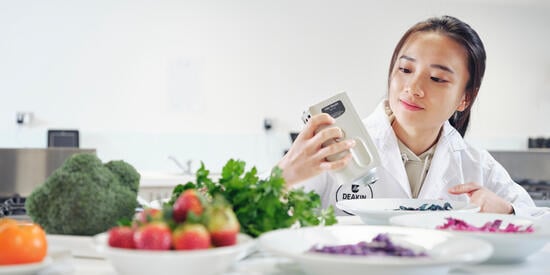
What's the difference between a nutritionist and a dietitian?
Nutrition is a popular career path, but it's often confused with dietetics. Learn the difference between a dietician and a nutritionist, and find which career is right for you.
Rankings and footnotes
Deakin references data from a range of government, higher education and reputable media sources. For more information, visit our University rankings page.
*Australian Government, Department of Health: www.health.gov.au/health-topics/food-and-nutrition/about
^Jobs and Skills Australia, National Employment Projections 2024 to 2034.
++Some courses have limited places, apply early to avoid missing out.
Contact us
Got a question about our food, nutrition and dietetics courses? Our course advisers are available to speak to you about your study options and how we can help you further your career.
Domestic students
1800 693 888
Enquire online
International students
+61 3 9918 9188
Enquire online


